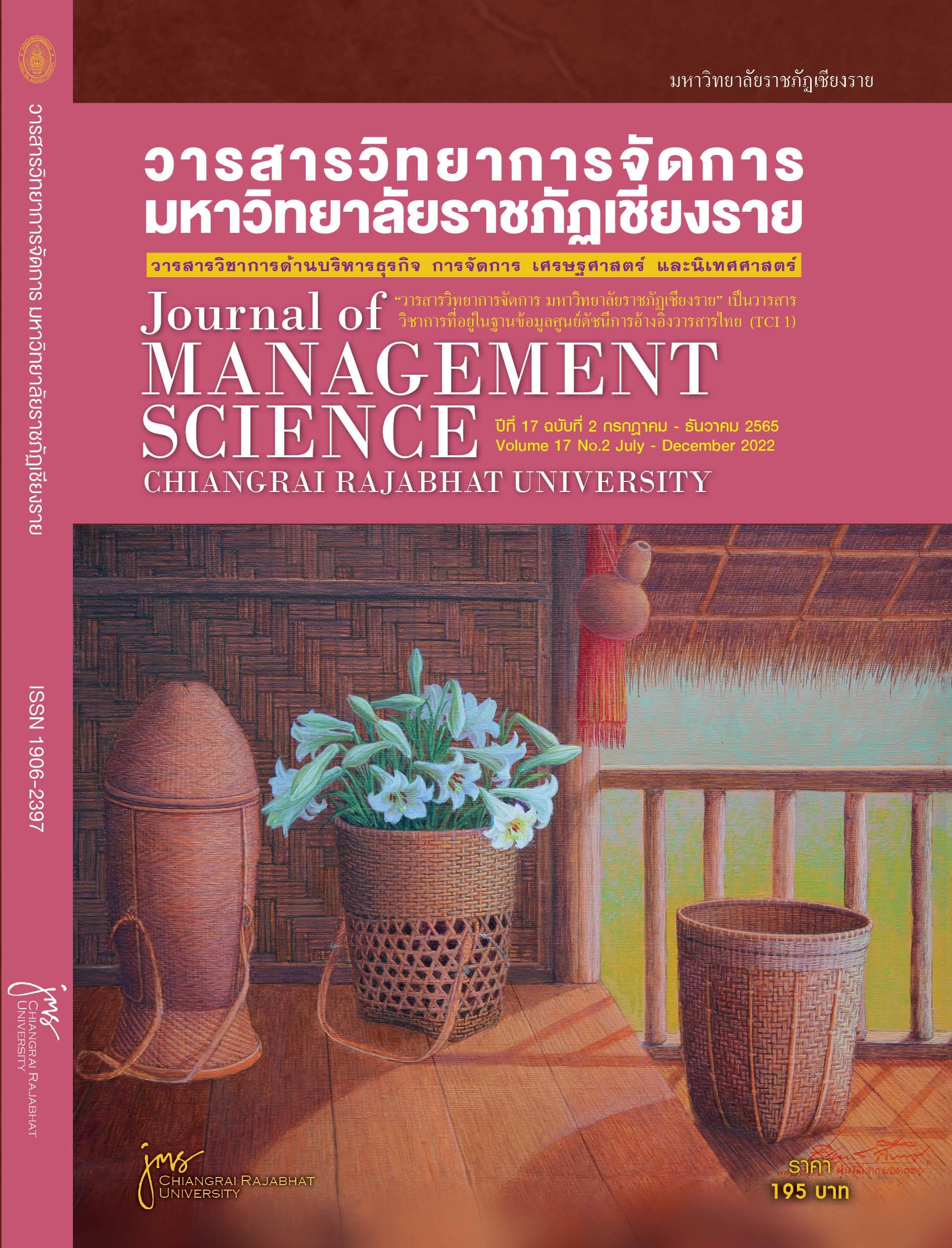Acculturation Process of Thai workers in South Korea
Main Article Content
Abstract
The study of the Acculturation Process of Thai workers in South Korea is a qualitative research. The participants or key informants in this study comprised twenty-five including legal and illegal Thai workers in South Korea. The researcher collected the data by utilizing In-depth and Semi-structured interview as a research instrument with the Non-participant observation method during the interview process. In addition to this, the Content Analysis and Descriptive Analysis were applied within the conceptual frameworks of Acculturation Process and Culture Shock by connecting with relevant social and cultural contexts in order to analyze and interpret the data.
The results of the study revealed that the Acculturation Process of Thai workers in South Korea were divided into two aspects: 1) the adaptation of legal Thai workers in South Korea and 2) the adaptation of illegal Thai workers in South Korea. The study suggested that there were four stages of the Acculturation Process: 1) the Honeymoon Stage, 2) the Culture Shock Stage,
3) the Recovery Stage, and 4) the Adjustment Stage. The findings also discovered that the most substantial difference between two groups of participants in the Acculturation Process occurred in the Recovery Stage in that the group of legal Thai workers could be able to grasp the new culture more rapidly than the group of illegal Thai workers.
Article Details

This work is licensed under a Creative Commons Attribution-NonCommercial-NoDerivatives 4.0 International License.
Views and opinions expressed in the journal do not necessarily reflect those of the editors.
References
Chotirostiti, M. (2013). Cross-Cultural Adjustment of Thai students who study abroad.
A Thesis Submitted in Partial Fulfillment of the Requirements for the Degree Master of Arts Program in Language and Communication.National Institute of Development Administration.
Chutrakul, N. (2021). Cross - Cultural Communicative Adaptation of Thais Living in Oxford,England. Journal of Communication Arts Review. 25(2), 62-76.
Department of Employment Ministry of Labor. (2022). Year book of employment statistics 2021. https://lib.doe.go.th/Fileopenwr1?newsno=84.
Hautavanija, P., Tuicomepee, A. and Kotrajaras, S. (2013). Cultural Adjustment of Thai Migrant Workers: A Qualitative Study. KKU Research Journal of Humanities and Social Sciences (Graduate Studies). 1(1), 14-27.
Labour Section, Royal Thai Embassy,Seoul. (2018). https://korea.mol.go.th/situation/trends-and- opportunities-of-thai-workers.
Oberg, K. (2009). Culture shock and the problem of adjustment to the new cultural environment. World Wide Classroom Consortium for International Education and Multicultural Studies, September.
Paiarsaa, T., Pouareeb, S. and Vajirakachornc, S. (2022). The Struggle for Survival from Covid-19 Pandemic of Illegal Thai Workers in South Korea: A Case Study
Udon Thani. Journal of Social Development. 24(1), 119-136.
Petprai, P. (2020). A Comparative Study of the Rights and Liberties of Thai legal and Illegal Workers in South Korea. Journal of Humanities and Social Sciences, Chiang Mai Rajabhat University. 2(2). 39-40.
Sotanasathien, S. (2016). Principles and Theory of Social Sciences Research. Bangkok : Prasitphan and Printing.
Sukheeatta, S., Suksawat, J. and Seansa, N. (2018). The Adaptation Experience of Thai Youths Immigrated With Their Mothers to Live in Stockholm, Sweden. Nakhon Phanom University Journal. 8(2). 10-16.
Vivatananukul, M. (2016). Intercultural Communication. Bangkok : Chulalongkorn University Printing House.


